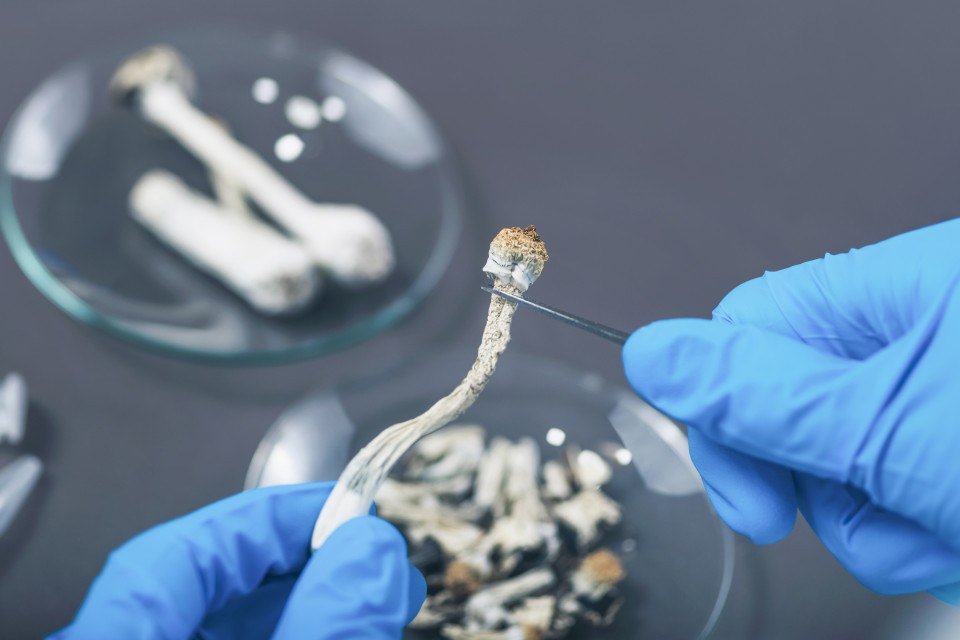Massachusetts Question 4 on Psychedelics: What You Need to Know
A no-BS guide to the psychedelics ballot initiative in November.

Preparing micro doses of psilocybin, a derivative from of magic mushrooms. / Photo via Getty Images
Come November 5, Bay State voters will face a trippy query on their ballots: Question 4 will ask whether to give a thumbs up or down to the Regulated Access to Psychedelic Substances Initiative (read it here), which would create therapeutic, supervised, and regulated access to natural psychedelics—specifically, two compounds found in “magic mushrooms” (psilocybin and psilocin), and the three plant substances dimethyltryptamine (DMT), mescaline, and ibogaine—and legalize the growth and possession of these psychedelics for personal use. It’s a cause championed by growing numbers in the medical community, as well as by Eliza Dushku Palandjian and her husband, Peter Palandjian, who donated to the effort to get the question onto the ballot. (See our October cover story, “Eliza Dushku’s Bold New Journey.”)
As proponents point out, this is not a dispensary model, where anyone can buy psychedelics from a licensed outlet to take home for recreational use (à la cannabis). Instead, people will be able to use these substances under the supervision of trained psychedelic therapists or grow them at home for personal use.
It’s that last aspect of the ballot question that’s raising concerns from organized opponents. Chris Keohane, spokesperson for the Coalition for Safe Communities, says home growth is a danger to children and pets, and the allowable 144 square feet for it is an “astronomical amount of space that will inevitably lead to a black market.” Keohane also believes the for-profit clinic model is problematic, pointing to Oregon, where psilocybin therapy is legal and some clinics charge as much as $15,000 for treatment, putting it out of reach for many people.
Still not sure how to vote? Here’s a detailed breakdown of the ballot initiative.
What it calls for:
- Legalization of the personal use of five natural psychedelic substances for adults over the age of 21 (psilocybin, psilocin, DMT, mescaline, and ibogaine)
- Establishment of a regulated therapeutic framework for psychedelic-assisted therapy, available at licensed centers for individuals over the age of 21.
- Creation of a rigorous safety prescreening requirement for individuals to qualify for psychedelic-assisted therapy.
- Permitting of licensed psychedelic-therapy centers to provide psychedelic services to individuals on-site only.
- Decriminalization of the personal possession of certain natural psychedelic substances.
- Legalization of home growth in a secured, limited amount of space.
What it doesn’t call for:
- Legalization of the sale of psychedelics outside of the licensed therapeutic setting.
- Creation of psychedelic retail stores.
- Any expenditure from MassHealth.
Related
- What’s the Deal with Ibogaine?
- Inside Boston’s Psychedelic Revolution
First published in the print edition of the October 2024 issue with the headline, “The Magic Question.”


